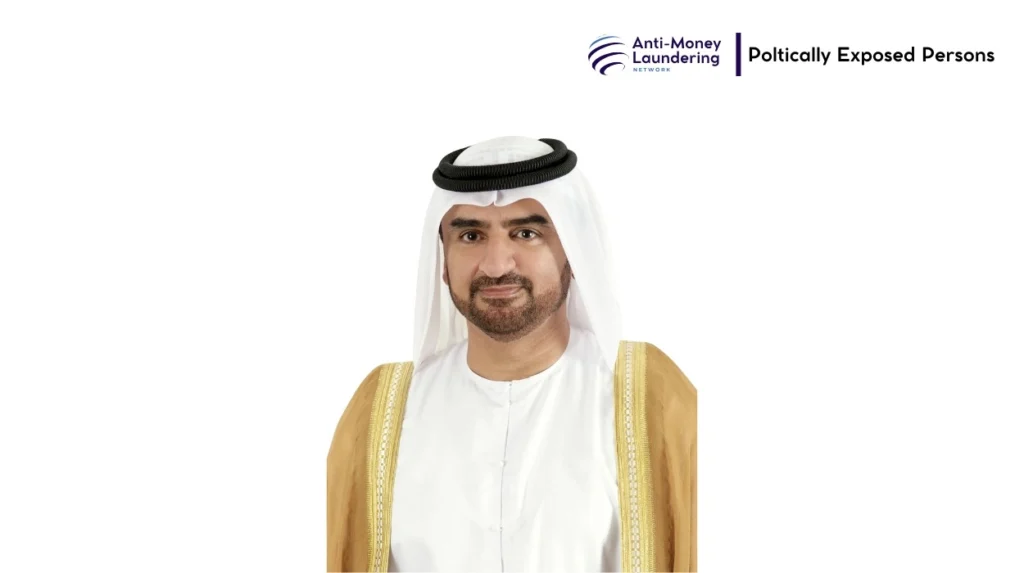Sheikh Abdullah bin Salem Al Qasimi is a notable political figure in the United Arab Emirates, holding the position of Deputy Ruler of Sharjah, one of the seven emirates that form the UAE. His role in the governance and development of Sharjah has been significant, as he is involved in key councils and government bodies steering the emirate’s progress. The Al Qasimi family is historically influential, and Sheikh Abdullah bin Salem Al Qasimi’s contributions are part of this legacy. This article elaborates on his background, personal life, career, lifestyle, and his role within the complex framework of political power and financial scrutiny.
Early Life and Background
While the exact date of birth and specific place of birth for Sheikh Abdullah bin Salem Al Qasimi are not publicly disclosed, he holds Emirati nationality and is a prominent member of the Al Qasimi family, which has a centuries-old legacy in Sharjah and Ras Al Khaimah. The Al Qasimi family has played a central role in shaping the political landscape of the northern Emirates. Given the typical education path for Gulf royals, Sheikh Abdullah likely received education aimed at preparing him for leadership roles, though detailed information about his academic background remains limited in the public domain.
Personal Life
Information about Sheikh Abdullah bin Salem Al Qasimi’s spouse and children is generally kept private, consistent with the customs of royal families in the Gulf region, who often maintain strict control over their family’s public information. The family as a whole remains an influential force within the UAE, with members holding various key positions in governance and business sectors. This privacy allows them to navigate both personal and official affairs discreetly, though it sometimes fuels speculation about their wealth and influence.
Career and Achievements
Sheikh Abdullah bin Salem Al Qasimi has served as the Deputy Ruler of Sharjah since 2008, a position that grants him considerable authority over political, social, and development affairs in the emirate. As Vice Chairman of the Sharjah Executive Council, he has been instrumental in policymaking and strategic governance, supporting initiatives that emphasize education, culture, and sustainable development. His previous role as Chairman of the Sharjah Electricity and Water Authority highlights his involvement in essential infrastructure management.
Under his tenure, Sharjah has seen advancements that have boosted its profile as a cultural and academic hub within the UAE and wider Gulf Cooperation Council region. His leadership role has helped forge partnerships that enhance economic diversification and social progress, sustaining Sharjah’s reputation as distinct in its cultural preservation compared to some of the more oil-reliant neighboring emirates.
Lifestyle and Wealth
The net worth of Sheikh Abdullah bin Salem Al Qasimi is not publicly known, but like many Gulf royals, he likely benefits from considerable family wealth accumulated over generations. This wealth often includes ownership or stakes in real estate, businesses, and various investments across multiple countries. Assets such as palaces and luxury vehicles among members of the ruling families are common, though specific details related to Sheikh Abdullah’s personal assets remain confidential. The lifestyle of a high-ranking royal typically includes elements of luxury balanced with traditional and cultural values.
Influence, Legacy, and Global Recognition
Sheikh Abdullah bin Salem Al Qasimi’s influence extends beyond his administrative roles; it is part of the broader impact of the Al Qasimi family in the UAE’s historical and cultural development. Sharjah’s prominence in education, with institutions such as the American University of Sharjah and the University of Sharjah, has been supported by the emirate’s leadership. His work assists in upholding the emirate’s image as a center for intellectual and artistic growth.
Globally, recognition of the Al Qasimi family stems from their long-standing rule and efforts to blend tradition with modernization. The family’s legacy is tied to the political stability and cultural identity of Sharjah, with international engagements that promote cultural dialogue and economic cooperation.
Financial Transparency and Global Accountability
As a Politically Exposed Person (PEP), Sheikh Abdullah bin Salem Al Qasimi operates within a high-risk context for financial scrutiny. The UAE, including Sharjah, often faces criticism for limited transparency mechanisms and reports of elite impunity. While no allegations have been publicly confirmed regarding financial misconduct linked to Sheikh Abdullah, his status necessitates a level of accountability expected of individuals in positions of power globally. The opaque nature of Gulf governance structures can make financial networks challenging to analyze, increasing the importance of international regulatory oversight and compliance standards.
The political and economic systems in the UAE create environments where ruling family members wield enormous influence over state resources. This sometimes results in the concealment of assets or questionable financial transactions shielded from public or international scrutiny. Ensuring financial transparency and implementing stringent anti-money laundering measures remain ongoing challenges for countries with similar governance models.
Sheikh Abdullah bin Salem Al Qasimi remains a key figure in the emirate of Sharjah, contributing to the political, social, and cultural fabric of the UAE. His leadership role, backed by the prestigious Al Qasimi family, underscores the continuity of traditional governance adapted to modern challenges. While detailed personal information remains scarce, his public roles and influence demonstrate the complex nature of power within the Gulf royal families.
Balancing legacy, governance, and modernization, Sheikh Abdullah’s career encapsulates the duality often found in the region’s leadership: preserving heritage while fostering growth. The way his role interfaces with financial transparency reflects wider challenges faced by Gulf states in aligning elite status with global accountability norms. This profile provides a comprehensive view that contextualizes his significance within both local and international arenas, addressing the nuances of power, wealth, and responsibility in contemporary Middle Eastern governance.

